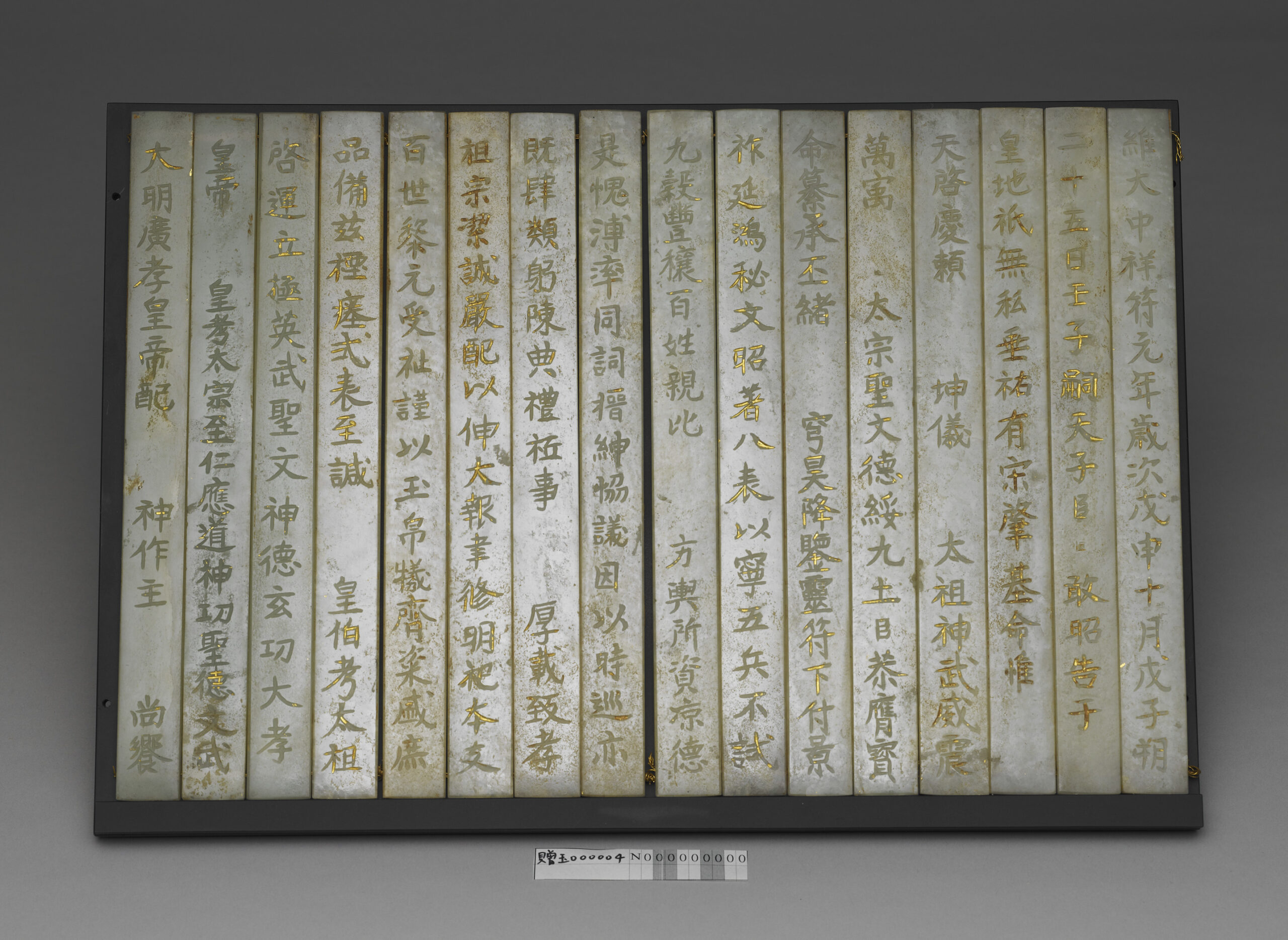The National Palace Museum in Taiwan houses outstanding historical artifacts and treasures from China.
In ancient China, there was a strict class distinction in rituals. Only the emperor could worship the gods of heaven and earth. Vassals and dignitaries were allowed to worship the mountains and rivers. The common people could worship their ancestors.
This is a jade book, known as a “jade tablet”, modeled after the bamboo slips used for writing in ancient times. This jade tablet was used in the Fengshan ceremony performed near Mount Tai by Emperor Zhenzong of the Northern Song Dynasty in the first year of Dazhong Xiangfu (1008 AD).
“Feng” in Fengshan refers to the worship of heaven, and “shan” means the worship of earth. In China, ancient emperors performed this grand ceremony to worship heaven and earth in times of peace. The legend of Fengshan has been passed down from the mythical Xia Dynasty, through the Shang Dynasty, to the Yin Dynasty.
People in ancient times considered Mount Tai the highest among all mountains, thus naming it the “First Mountain Under Heaven”. It is said that since mythological times, human emperors have gone to this mountain to worship the Heavenly Emperor and receive the Mandate of Heaven. Mount Tai, located in Tai’an City, Shandong Province, has a peak, called Jade Emperor Peak, standing 1,545 meters high. Fengshan ceremonies were conducted here.
The Fengshan ritual of worshipping heaven and earth was the highest ceremony for ancient emperors. It was conducted when dynasties or eras changed, or when long-term rebellions were quelled, and peace was restored throughout the land. At this time, by performing Fengshan, they reported their great achievements to heaven and earth, and at the same time, received the Mandate of Heaven to govern the world.
The “Mandate of Heaven” refers to the belief that the authority of a monarch is granted by “heaven”. It is not a fixed concept but holds that only those with virtue can receive the Mandate of Heaven, and if one loses their virtue, they lose this mandate. This belief, which admits the right of revolution, represents an innovative idea that is unfathomable in Japan.
